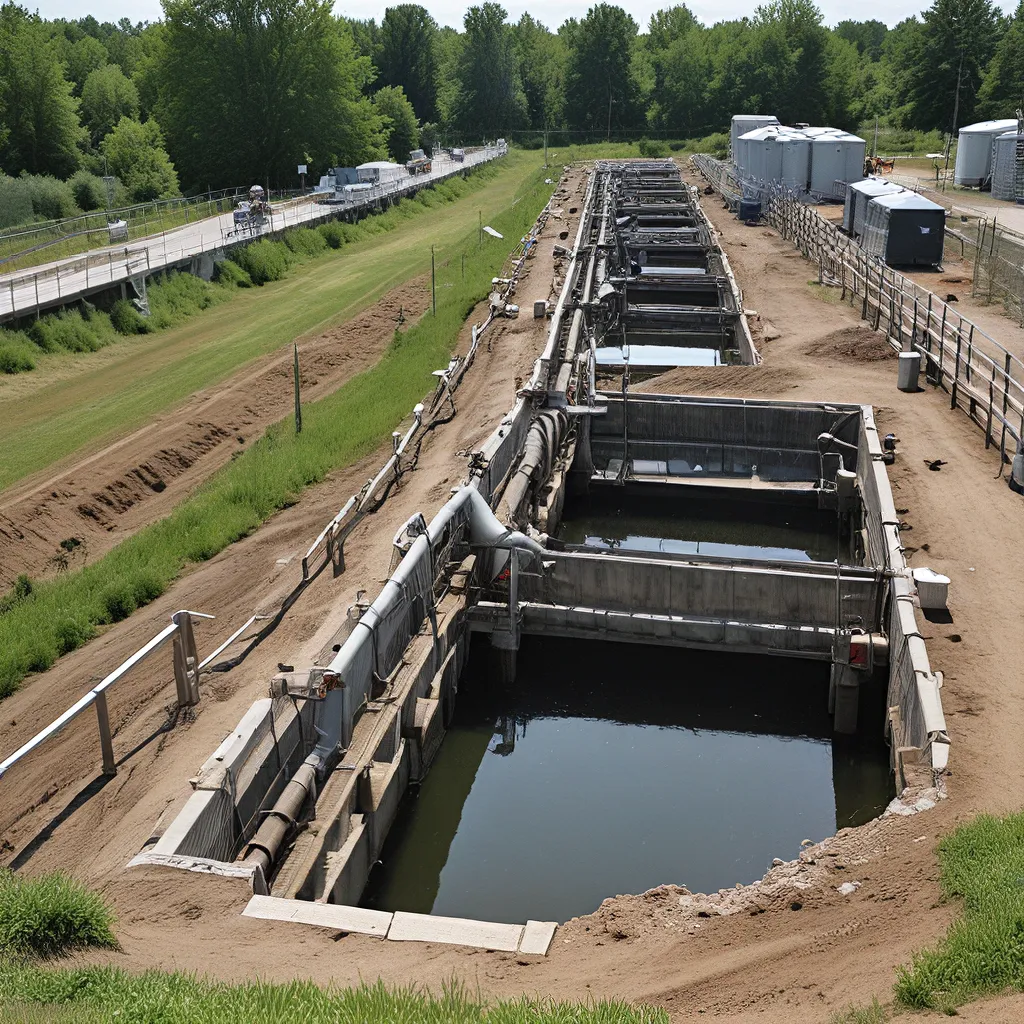
As the caretaker of our waterways, the wastewater treatment industry plays a vital role in preserving the environment and safeguarding public health. But there’s a crucial aspect of this work that often goes unnoticed: the importance of social equity. You see, the distribution of resources, benefits, and burdens when it comes to wastewater treatment has historically been far from fair, particularly for marginalized communities.
Uncovering the Roots of Inequity
Let’s rewind a bit and explore the backstory. Wastewater treatment has come a long way since its early days. Back in the day, it was all about simply getting rid of the dirty stuff – no real concern for the environment or the people impacted. But over time, as we collectively became more conscious of our environmental footprint, the industry evolved to prioritize sustainability and ecological preservation.
However, the legacy of past inequities lingers. Historically, certain neighborhoods and communities – often those with higher concentrations of low-income residents or racial minorities – have faced disproportionate burdens when it comes to wastewater treatment. These communities may have had limited access to adequate infrastructure, faced higher exposure to pollutants, and endured greater health risks as a result. It’s a classic case of environmental injustice, where the most vulnerable bear the brunt of the consequences.
Defining the Concepts
To fully grasp the significance of this issue, we need to understand a few key terms. Social equity refers to the fair distribution of resources, benefits, and burdens within society. Environmental justice, on the other hand, focuses on the intersection of social equity and environmental concerns – ensuring that all communities, regardless of their socioeconomic status or demographics, have equal access to a clean and healthy environment.
These concepts are crucial because they help us recognize that wastewater treatment is not just a technical challenge – it’s a social one as well. When certain groups are systematically excluded from the benefits of wastewater infrastructure, it perpetuates wider societal inequalities and denies them the fundamental right to a safe, healthy living environment.
Disparities and Consequences
The disparities in access to wastewater treatment can be staggering. In some urban areas, wealthier neighborhoods may have state-of-the-art treatment facilities, while nearby low-income communities struggle with aging, inadequate infrastructure. This translates to higher risks of waterborne illnesses, environmental degradation, and diminished quality of life for those on the wrong side of the divide.
And it’s not just an urban problem. In rural settings, a wastewater treatment plant may be strategically located to serve the affluent, while nearby disadvantaged communities bear the brunt of the facility’s environmental impact. The lack of investment and attention to these marginalized areas only compounds the problem, creating a vicious cycle of neglect and disproportionate burden.
Tackling the Challenges
Addressing social equity in wastewater treatment is no easy feat. Funding and resource constraints, regulatory hurdles, and insufficient community engagement all pose significant barriers to progress. But the stakes are too high to ignore this issue.
That’s why Alpha Wastewater is committed to being part of the solution. We understand that sustainable, environmentally responsible wastewater management is only half the battle – it’s equally important to ensure that the benefits and burdens of this critical service are distributed equitably across all communities.
Innovative Approaches and Emerging Trends
Fortunately, there’s a growing recognition within the industry that social equity must be a top priority. Innovative technologies and management strategies are emerging to enhance efficiency and accessibility, while stakeholders are increasingly collaborating to address disparities.
For example, some utilities are exploring digital solutions that improve service delivery and transparency, making it easier for underserved communities to access information and participate in decision-making processes. Others are experimenting with new funding models and targeted infrastructure investments to ensure that marginalized areas receive the support they need.
Collaborating for Change
But progress requires more than just technical fixes. It demands a holistic, multi-stakeholder approach that brings together policymakers, researchers, community organizations, and utilities like Alpha Wastewater. By pooling our knowledge, resources, and community connections, we can develop comprehensive strategies to address the root causes of inequity and create a more equitable wastewater future.
Take the US Water Alliance’s Water Equity Network, for instance. This nationwide community of practice is dedicated to advancing water equity, with a focus on ensuring access to clean, affordable water and wastewater services, resilience against climate risks, and inclusive decision-making. By collaborating and sharing best practices, members are making strides towards transforming the industry.
Navigating Complexities and Trade-Offs
Of course, the path to equity is not without its challenges. Sometimes, the pursuit of environmental sustainability may conflict with social equity goals, requiring careful navigation of trade-offs. There may also be controversies surrounding resource allocation and funding priorities, as well as disagreements about the responsibility for addressing equity issues.
Additionally, climate change poses potential threats to wastewater treatment infrastructure and service delivery, which could exacerbate existing inequities. Adaptation and resilience strategies will be crucial to safeguarding vulnerable communities.
A Call to Action
Despite the complexities, the need for action is clear. Wastewater treatment is not just a technical endeavor – it’s a social and ethical imperative. By addressing disparities in access, environmental impacts, and decision-making processes, we can work towards a more just and equitable future for all.
At Alpha Wastewater, we’re committed to being part of this transformative journey. We understand that our work goes beyond simply treating wastewater – it’s about building inclusive, resilient communities where everyone has a fair shot at a healthy, thriving environment.
So, let’s roll up our sleeves and get to work. The path ahead may be winding, but with collaboration, innovation, and a steadfast commitment to equity, I believe we can create a wastewater system that truly serves the needs of all people, regardless of their ZIP code or socioeconomic status. After all, when it comes to the health of our waterways and the well-being of our communities, we’re all in this together.